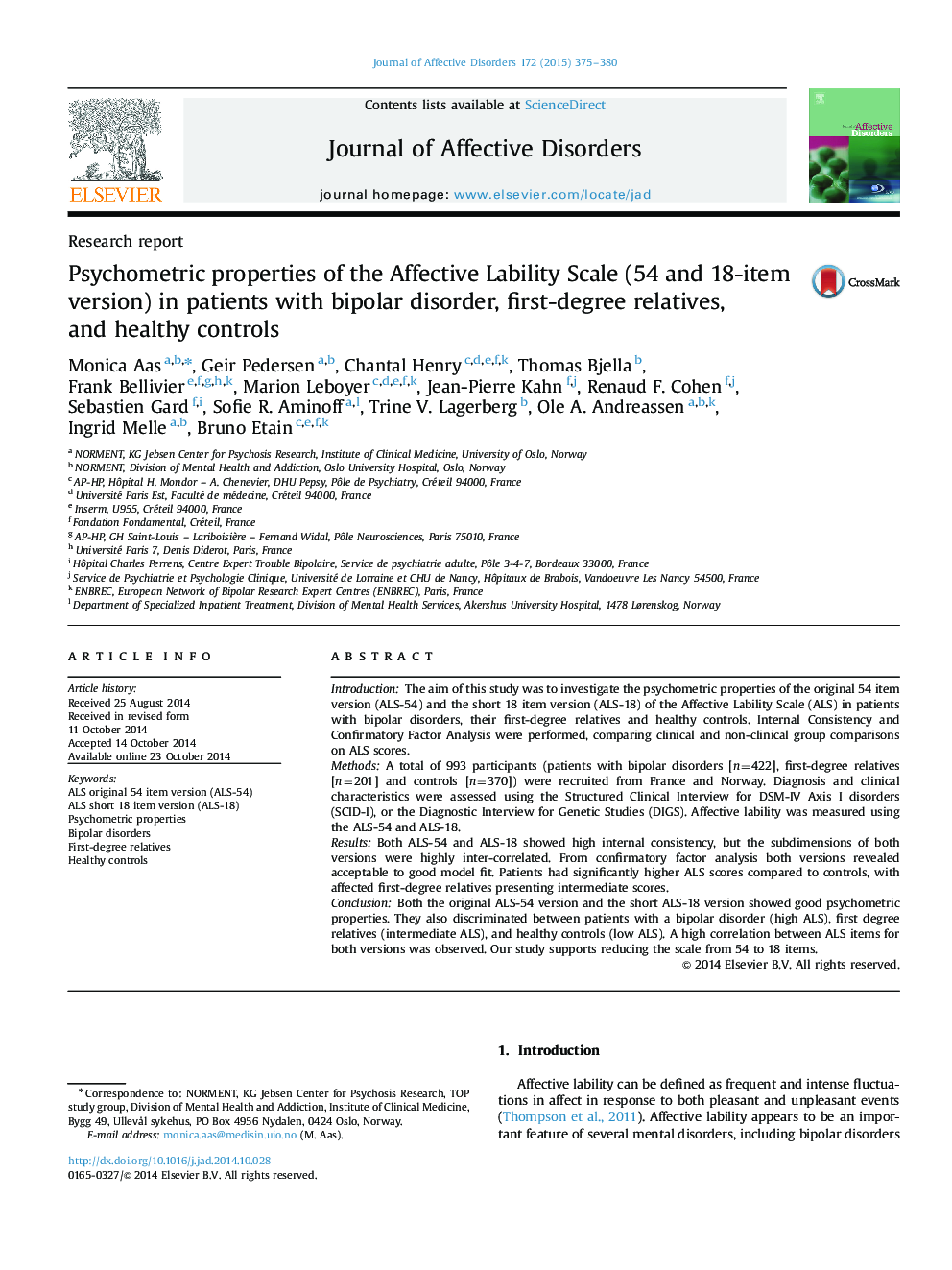| Article ID | Journal | Published Year | Pages | File Type |
|---|---|---|---|---|
| 6232331 | Journal of Affective Disorders | 2015 | 6 Pages |
IntroductionThe aim of this study was to investigate the psychometric properties of the original 54 item version (ALS-54) and the short 18 item version (ALS-18) of the Affective Lability Scale (ALS) in patients with bipolar disorders, their first-degree relatives and healthy controls. Internal Consistency and Confirmatory Factor Analysis were performed, comparing clinical and non-clinical group comparisons on ALS scores.MethodsA total of 993 participants (patients with bipolar disorders [n=422], first-degree relatives [n=201] and controls [n=370]) were recruited from France and Norway. Diagnosis and clinical characteristics were assessed using the Structured Clinical Interview for DSM-IV Axis I disorders (SCID-I), or the Diagnostic Interview for Genetic Studies (DIGS). Affective lability was measured using the ALS-54 and ALS-18.ResultsBoth ALS-54 and ALS-18 showed high internal consistency, but the subdimensions of both versions were highly inter-correlated. From confirmatory factor analysis both versions revealed acceptable to good model fit. Patients had significantly higher ALS scores compared to controls, with affected first-degree relatives presenting intermediate scores.ConclusionBoth the original ALS-54 version and the short ALS-18 version showed good psychometric properties. They also discriminated between patients with a bipolar disorder (high ALS), first degree relatives (intermediate ALS), and healthy controls (low ALS). A high correlation between ALS items for both versions was observed. Our study supports reducing the scale from 54 to 18 items.
